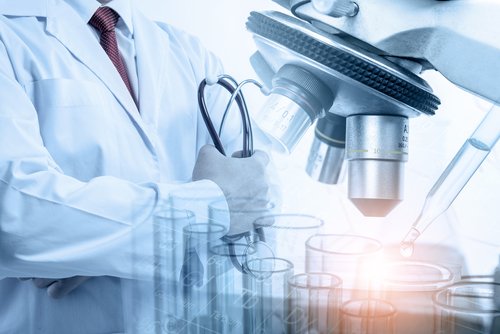Two Australians Win Fellowship Aimed at Breaking Barriers Between Basic and Therapy-development Research
Written by |

Two researchers at the University of Tasmania’s Menzies Institute for Medical Research have received an innovative multiple sclerosis research fellowship that was created to drive basic scientific research into treatment development and the doctor’s office.
MS Research Australia and The Macquarie Group Foundation founded the three-year, $750,000 program. It is unique in that it will bring together basic science researchers and therapy-development researchers to try to convert laboratory research into disease solutions.
The grant was awarded to Professor Bruce Taylor, a Menzies researcher who is also a neurologist at the Royal Hobart Hospital, and to Dr. Kaylene Young, a neuroscientist whose long career in laboratory research has focused on mechanisms that the brain uses to repair itself.
“We are very proud that two of our senior scientists have been chosen through a competitive process to achieve this, the only nationally funded, paired fellowship in multiple sclerosis research,” Professor Alison Venn, director of Menzies, said in a press release.
“We have 20 years of research into multiple sclerosis at Menzies, and this disease is a key area of focus for us,” she said. “This funding will allow us to bring together two different streams of research that are investigating the disease. I would like to express our gratitude to MS Research Australia and the Macquarie Group Foundation for providing such an exciting opportunity.”
Taylor’s achievements include identifying genetic mutations that may increase the risk of a person developing MS. The award will help him move these discoveries to the lab to determine how the mutations harm cells.
“That knowledge can help us repurpose existing drugs that could offset the effect of the mutation, and could be used in future clinical trials,” Taylor said.
Young discovered that a type of non-invasive brain stimulation can increase brain stem cells’ ability to produce new cells that repair the nervous system. She plans to move the technology, known as transcranial magnetic stimulation (TMS), from the lab to therapy-development-related research.
“We will perform a safety trial of TMS to ensure that this potential treatment can be safely administered to people with MS,” Young said.
Matthew Miles, CEO of MS Research Australia, said “our new and innovative grant program launches a unique opportunity. It addresses one of the key recommendations identified in the 2013 McKeon Review into Health and Medical Research: that far more clinicians [those working on therapy development] need to participate in the [basic] research process. This fellowship will also break down the barriers between the lab and the clinic [the doctor’s office] and ensure faster translation of research discoveries into tangible health benefits for the community.
“We are thrilled that Dr. Kaylene Young and Professor Bruce Taylor are the inaugural recipients. Their research will help expedite new treatments to protect and repair the nervous system — something that is desperately needed for people with MS.”


